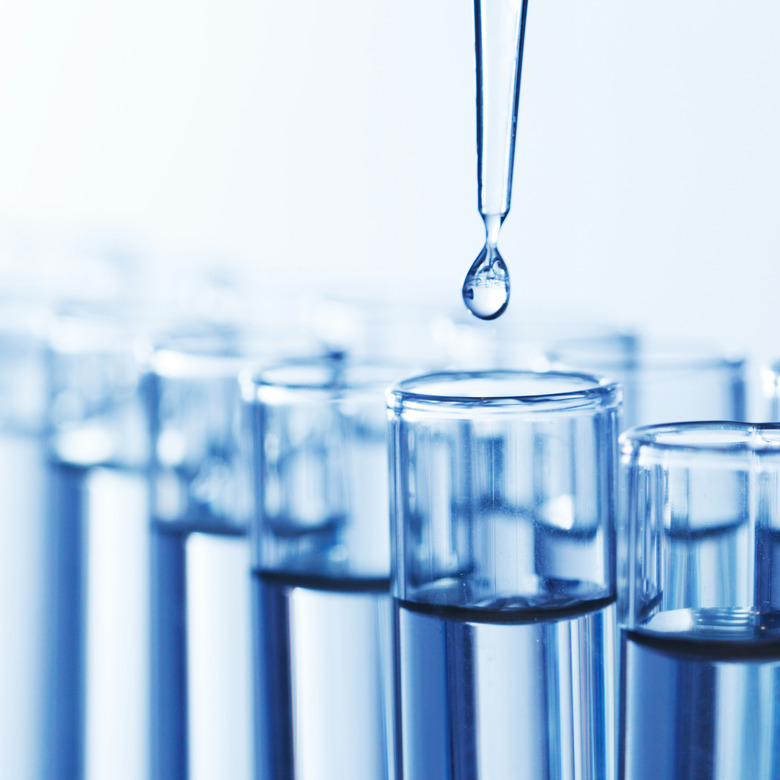Why Must A Burette & Pipette Be Rinsed With The Appropriate Solution Before A Titration?
When performing a titration, or chemical analysis, with a burette, a common piece of lab glassware, you start by rinsing the burette with a little of the solution you will add to it. This step isn't just a sacred ceremony or a special chemistry ritual – by rinsing the burette, you make sure the concentration of the solution inside will be exactly what you expect it to be. Rinsing with solution actually serves a simple but very practical purpose.
Concentration of Titrant
Concentration of Titrant
You perform titrations to determine the concentration of a chemical in a sample. To do so, you make use of a titrant, a solution whose concentration you already know. If the concentration of the titrant isn't what you think it is, then your results will be meaningless. Consequently, make sure the concentration of the titrant in the burette is exactly what you expect it to be.
Beware of Impurities
Beware of Impurities
If you share equipment with someone else, such as a lab partner, and she didn't clean the burette as thoroughly as you would, it's possible you could introduce some contaminants into your titrant if you don't rinse the burette first. Depending on the nature of these contaminants, they might have an effect on the concentration of your titrant and the reaction that takes place in your sample.
The second and more important reason for rinsing your burette has to do with water. When you're cleaning your glassware, you use water to rinse it off. If the burette is not completely dry by the time you use it, the remaining traces of water on the inside will make your titrant more dilute and thereby change its concentration. Consequently, if you don't rinse your burette with titrant and there really is some water remaining inside, the titrant you dispense will be more dilute than it should be.
Some Additional Considerations
Some Additional Considerations
If there's one place where haste makes waste, it's in the lab. It will only take you a few moments to thoroughly rinse your burette, but that simple act can spare you data anomalies that would force you to repeat a whole experiment – potentially costing hours of your time. If you're in a lab class, a bad result might translate into a poorer grade. Rinsing your burette is a sensible and simple precaution you can take to help ensure accuracy.
Cite This Article
MLA
Brennan, John. "Why Must A Burette & Pipette Be Rinsed With The Appropriate Solution Before A Titration?" sciencing.com, https://www.sciencing.com/must-appropriate-solution-before-titration-8745281/. 13 March 2018.
APA
Brennan, John. (2018, March 13). Why Must A Burette & Pipette Be Rinsed With The Appropriate Solution Before A Titration?. sciencing.com. Retrieved from https://www.sciencing.com/must-appropriate-solution-before-titration-8745281/
Chicago
Brennan, John. Why Must A Burette & Pipette Be Rinsed With The Appropriate Solution Before A Titration? last modified August 30, 2022. https://www.sciencing.com/must-appropriate-solution-before-titration-8745281/
